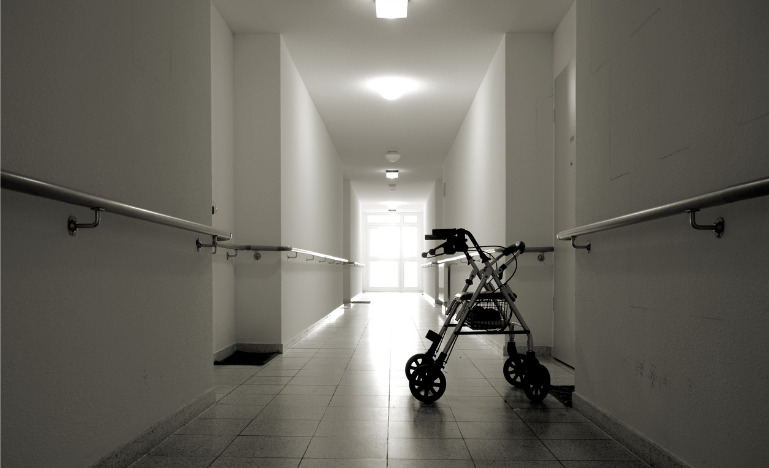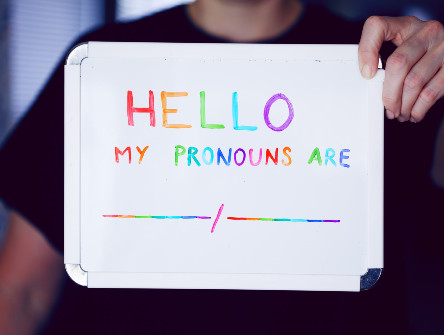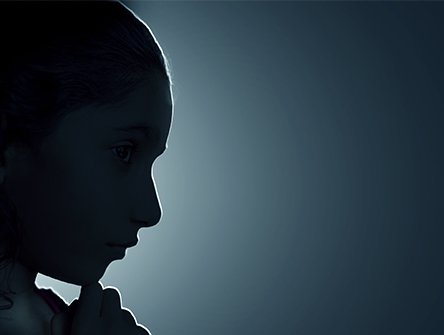Hearing everyone on MAID
We need to include people with disabilities, Indigenous and racialized women and gender-diverse people in conversations around medical assistance in dying.

As COVID-19 continues to dominate the headlines, the Senate is currently considering another matter of life or death that deserves our attention. Bill C-7 would significantly change the landscape for medical assistance in dying (MAID) in Canada, allowing persons who are not at the natural end of their lives to access MAID.
Unfortunately, in seeking to rush Bill C-7 through Parliament in the midst of a pandemic, the federal government has missed out on hearing from some of the key communities who will be affected by the legislation, including women and gender-diverse people with disabilities.
Canada's framework for accessing MAID was established in 2016, permitting adults who meet a defined list of eligibility criteria to access MAID. One key requirement is that the person must have a “grievous and irremediable medical condition”.
The Criminal Code spells out what this means. The condition must be serious and incurable. It must cause enduring and intolerable physical or psychological suffering that cannot be relieved in a manner acceptable to the person. The person must be in an advanced state of irreversible decline in capability. Lastly, and most importantly in the context of Bill C-7, the person’s death must have become “reasonably foreseeable.”
In 2019, the Superior Court of Quebec found that the “reasonably foreseeable” natural death requirement violated the Canadian Charter of Rights and Freedoms. After deciding not to appeal the decision, the federal government introduced Bill C-7.
As an organization with a mandate to advance substantive gender equality in Canada, LEAF understands the importance of centering the lived experiences of those who will be most affected by legislation, especially women and gender-diverse people with disabilities.
To understand the potential impacts of Bill C-7, the government must also understand the role ableism plays in Canadian society, and how it shapes the choices available to people with disabilities.
Ableism defines people with disabilities as “less than.” It is reflected in the marginalization and exclusion of people with disabilities in Canada. People with disabilities disproportionately live in poverty. They face higher than average levels of unemployment. They are more likely to be victims of violent crime than people without disabilities. Women and gender-diverse people with disabilities experience these challenges at greater rates and in different ways, particularly those who are also Indigenous or racialized. Social inequality therefore shapes the lived reality of many people with disabilities in Canada.
Against this backdrop, organizations such as the DisAbled Women’s Network of Canada and Inclusion Canada have strongly spoken out against Bill C-7. These organizations raise the justified fear that Bill C-7 will lead to individuals with disabilities accessing MAID, not because they are making a free, non-coerced decision to die, but because social inequality and inadequate supports shape their choice to live.
In this context, it is clear why United Nations human rights experts have called for governments broadening access to MAID to meaningfully engage with people with disabilities, and their representative organizations, in crafting any such legislation. In Canada, however, the rush to pass Bill C-7 has shaped who has been able to participate and the nature of their submissions. In particular, as the Wabanaki Council on Disability and Sarah Jama of the Disability Justice Network of Ontario have pointed out, there has been a significant lack of Black and Indigenous voices heard in the debate over Bill C-7.
The process does not need to be this way. The government should pause its current deliberations and engage in meaningful consultations with people with disabilities, including Indigenous and racialized women and gender-diverse people. If the government chooses to pass Bill C-7, it should immediately refer the legislation to the Supreme Court of Canada to determine whether or not it is constitutional.
At the same time, all levels of government should take steps to improve and increase the accessibility of social services and supports for people with disabilities. In doing so, they would elevate the government’s commitment to the right of people with disabilities to live with dignity to at least the same level as its commitment to the right to die with dignity.
The federal government has the opportunity to ensure that people with disabilities, including Indigenous and racialized women and gender-diverse people, are meaningfully included in conversations around Bill C-7 and MAID. Decisions about their lives, and their deaths, cannot and should not be made without them.


